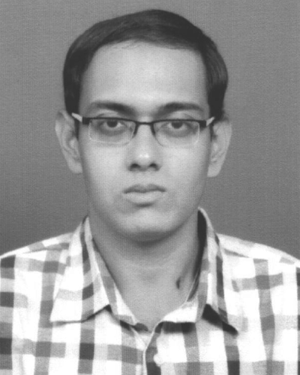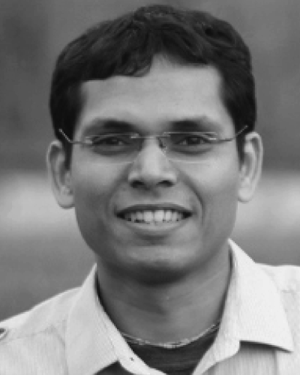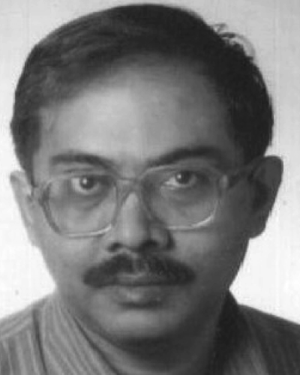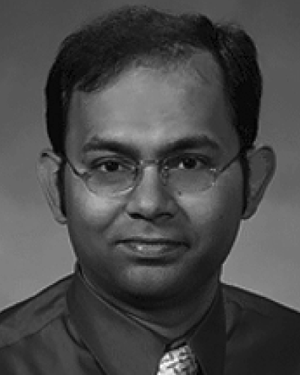Abstract:
Microblogging platforms such as Twitter are widely used by eyewitnesses and affected people to post situational updates during mass convergence events such as natural and...Show MoreMetadata
Abstract:
Microblogging platforms such as Twitter are widely used by eyewitnesses and affected people to post situational updates during mass convergence events such as natural and man-made disasters. These crisis-related messages disperse among multiple classes/categories such as infrastructure damage, shelter needs, information about missing, injured, and dead people. Moreover, we observe that sometimes people post information about their missing relatives and friends with personal details such as names and last seen location. The information requirements of different stakeholders (government, NGOs, and rescue workers) also vary a lot. This brings twofold challenges: 1) extracting important high-level situational updates from these messages, assigning them appropriate categories, and finally summarizing big trove of information in each category and 2) extracting small-scale time-critical sparse updates related to missing or trapped people. In this article, we propose a classification-summarization framework which first assigns tweets into different situational classes and then summarizes those tweets. In the summarization phase, we propose a two-step extractive-abstractive summarization framework. In the first step, it extracts a set of important tweets from the whole set of information, develops a bigram-based word-graph from those tweets, and generates paths by traversing the word-graph. Next, it uses an optimization technique based on integer linear programming (ILP) to select the most important tweets and paths based on different optimization parameters such as informativeness and coverage of content words. Apart from general classwise summarization, we also show the customization of our summarization model to address time-critical sparse information needs (e.g., missing relatives). Our proposed method is time- and memory-efficient and shows better performance than state-of-the-art methods in terms of both quantitative and qualitative judgment.
Published in: IEEE Transactions on Computational Social Systems ( Volume: 6, Issue: 5, October 2019)
Funding Agency:

L3S Research Center, Leibniz University Hannover, Hannover, Germany
Koustav Rudra received the B.E. degree in computer science from Bengal Engineering and Science University (BESU), Shibpur, India (which is presently known as IIEST Shibpur), in 2011, the M.Tech. degree from the Department of Computer Science and Engineering, BESU (which is presently known as IIEST Shibpur), in 2013, and the Ph.D. degree from the Department of Computer Science and Engineering, IIT Kharagpur, Kharagpur, Ind...Show More
Koustav Rudra received the B.E. degree in computer science from Bengal Engineering and Science University (BESU), Shibpur, India (which is presently known as IIEST Shibpur), in 2011, the M.Tech. degree from the Department of Computer Science and Engineering, BESU (which is presently known as IIEST Shibpur), in 2013, and the Ph.D. degree from the Department of Computer Science and Engineering, IIT Kharagpur, Kharagpur, Ind...View more

Department of Computer Science and Engineering, IIT Kharagpur, Kharagpur, India
Pawan Goyal received the B.Tech. degree in electrical engineering from IIT Kanpur, Kanpur, India, in 2007, and the Ph.D. degree from the Faculty of Computing and Engineering, University of Ulster, Londonderry, U.K., in 2011.
He was a Post-Doctoral Fellow with the INRIA Paris Rocquencourt, Rocquencourt, France. He is currently an Assistant Professor with the Department of Computer Science and Engineering, IIT Kharagpur, Kha...Show More
Pawan Goyal received the B.Tech. degree in electrical engineering from IIT Kanpur, Kanpur, India, in 2007, and the Ph.D. degree from the Faculty of Computing and Engineering, University of Ulster, Londonderry, U.K., in 2011.
He was a Post-Doctoral Fellow with the INRIA Paris Rocquencourt, Rocquencourt, France. He is currently an Assistant Professor with the Department of Computer Science and Engineering, IIT Kharagpur, Kha...View more

Department of Computer Science and Engineering, IIT Kharagpur, Kharagpur, India
Niloy Ganguly received the B.Tech. degree from IIT Kharagpur, Kharagpur, India, in 1992, and the Ph.D. degree from the Indian Institute of Engineering Science and Technology (IIEST) Shibpur, Howrah, India, in 2004.
He was a Post-Doctoral Fellow with Technical University, Dresden, Germany. He is currently a Professor with the Department of Computer Science and Engineering, IIT Kharagpur, where he leads the Complex Networks ...Show More
Niloy Ganguly received the B.Tech. degree from IIT Kharagpur, Kharagpur, India, in 1992, and the Ph.D. degree from the Indian Institute of Engineering Science and Technology (IIEST) Shibpur, Howrah, India, in 2004.
He was a Post-Doctoral Fellow with Technical University, Dresden, Germany. He is currently a Professor with the Department of Computer Science and Engineering, IIT Kharagpur, where he leads the Complex Networks ...View more

Department of Social Computing, Qatar Computing Research Institute, Hamad Bin Khalifa University (HBKU), Doha, Qatar
Muhammad Imran received the Ph.D. degree in computer science (HCI) from the University of Trento, Trento, Italy, in 2013, where he also co-taught various computer science courses from 2009 to 2012.
He was a Post-Doctoral Researcher with the Qatar Computing Research Institute (QCRI), Doha, Qatar, from 2013 to 2015, where he is currently a Research Scientist and leads the Crisis Computing Team from both science and engineeri...Show More
Muhammad Imran received the Ph.D. degree in computer science (HCI) from the University of Trento, Trento, Italy, in 2013, where he also co-taught various computer science courses from 2009 to 2012.
He was a Post-Doctoral Researcher with the Qatar Computing Research Institute (QCRI), Doha, Qatar, from 2013 to 2015, where he is currently a Research Scientist and leads the Crisis Computing Team from both science and engineeri...View more

College of Information Science and Technology, Pennsylvania State University, State College, PA, USA
Prasenjit Mitra received the B.Tech. degree (Hons.) from IIT Kharagpur, Kharagpur, India, in 1993, the M.S. degree in computer science from The University of Texas at Austin, Austin, TX, USA, in 1994, and the Ph.D. degree from Stanford University, Stanford, CA, USA, in 2004, where he investigated issues related to modeling data and the semantics of data in an information integration system.
From 1995 to 2000, he was a Seni...Show More
Prasenjit Mitra received the B.Tech. degree (Hons.) from IIT Kharagpur, Kharagpur, India, in 1993, the M.S. degree in computer science from The University of Texas at Austin, Austin, TX, USA, in 1994, and the Ph.D. degree from Stanford University, Stanford, CA, USA, in 2004, where he investigated issues related to modeling data and the semantics of data in an information integration system.
From 1995 to 2000, he was a Seni...View more

L3S Research Center, Leibniz University Hannover, Hannover, Germany
Koustav Rudra received the B.E. degree in computer science from Bengal Engineering and Science University (BESU), Shibpur, India (which is presently known as IIEST Shibpur), in 2011, the M.Tech. degree from the Department of Computer Science and Engineering, BESU (which is presently known as IIEST Shibpur), in 2013, and the Ph.D. degree from the Department of Computer Science and Engineering, IIT Kharagpur, Kharagpur, India, in 2018.
He is currently a Post-Doctoral Researcher with the L3S Research Center, Leibniz University Hannover, Hannover, Germany. His current research interests include crisis informatics, social computing, and artificial intelligence (AI) for social good.
Koustav Rudra received the B.E. degree in computer science from Bengal Engineering and Science University (BESU), Shibpur, India (which is presently known as IIEST Shibpur), in 2011, the M.Tech. degree from the Department of Computer Science and Engineering, BESU (which is presently known as IIEST Shibpur), in 2013, and the Ph.D. degree from the Department of Computer Science and Engineering, IIT Kharagpur, Kharagpur, India, in 2018.
He is currently a Post-Doctoral Researcher with the L3S Research Center, Leibniz University Hannover, Hannover, Germany. His current research interests include crisis informatics, social computing, and artificial intelligence (AI) for social good.View more

Department of Computer Science and Engineering, IIT Kharagpur, Kharagpur, India
Pawan Goyal received the B.Tech. degree in electrical engineering from IIT Kanpur, Kanpur, India, in 2007, and the Ph.D. degree from the Faculty of Computing and Engineering, University of Ulster, Londonderry, U.K., in 2011.
He was a Post-Doctoral Fellow with the INRIA Paris Rocquencourt, Rocquencourt, France. He is currently an Assistant Professor with the Department of Computer Science and Engineering, IIT Kharagpur, Kharagpur, India. He has published in various top-tier conferences and journals, including the Association for Computational Linguistics (ACL), NAACL, the Conference on Empirical Methods in Natural Language Processing (EMNLP), SIGIR, KDD, the Conference on Information and Knowledge Management (CIKM), the Joint Conference on Digital Libraries (JCDL), the International AAAI Conference on Web and Social Media (ICWSM), the ACM Conference on Computer-Supported Cooperative Work and Social Computing (CSCW), the International Conference on Computational Linguistics (COLING), IEEE, and ACM transactions. His current research interests include natural language processing, text mining, information retrieval, and Sanskrit computational linguistics.
Pawan Goyal received the B.Tech. degree in electrical engineering from IIT Kanpur, Kanpur, India, in 2007, and the Ph.D. degree from the Faculty of Computing and Engineering, University of Ulster, Londonderry, U.K., in 2011.
He was a Post-Doctoral Fellow with the INRIA Paris Rocquencourt, Rocquencourt, France. He is currently an Assistant Professor with the Department of Computer Science and Engineering, IIT Kharagpur, Kharagpur, India. He has published in various top-tier conferences and journals, including the Association for Computational Linguistics (ACL), NAACL, the Conference on Empirical Methods in Natural Language Processing (EMNLP), SIGIR, KDD, the Conference on Information and Knowledge Management (CIKM), the Joint Conference on Digital Libraries (JCDL), the International AAAI Conference on Web and Social Media (ICWSM), the ACM Conference on Computer-Supported Cooperative Work and Social Computing (CSCW), the International Conference on Computational Linguistics (COLING), IEEE, and ACM transactions. His current research interests include natural language processing, text mining, information retrieval, and Sanskrit computational linguistics.View more

Department of Computer Science and Engineering, IIT Kharagpur, Kharagpur, India
Niloy Ganguly received the B.Tech. degree from IIT Kharagpur, Kharagpur, India, in 1992, and the Ph.D. degree from the Indian Institute of Engineering Science and Technology (IIEST) Shibpur, Howrah, India, in 2004.
He was a Post-Doctoral Fellow with Technical University, Dresden, Germany. He is currently a Professor with the Department of Computer Science and Engineering, IIT Kharagpur, where he leads the Complex Networks Research Group (see http://cse.iitkgp.ac.in/resgrp/cnerg/). His current research interests include complex networks, social networks, and mobile systems.
Niloy Ganguly received the B.Tech. degree from IIT Kharagpur, Kharagpur, India, in 1992, and the Ph.D. degree from the Indian Institute of Engineering Science and Technology (IIEST) Shibpur, Howrah, India, in 2004.
He was a Post-Doctoral Fellow with Technical University, Dresden, Germany. He is currently a Professor with the Department of Computer Science and Engineering, IIT Kharagpur, where he leads the Complex Networks Research Group (see http://cse.iitkgp.ac.in/resgrp/cnerg/). His current research interests include complex networks, social networks, and mobile systems.View more

Department of Social Computing, Qatar Computing Research Institute, Hamad Bin Khalifa University (HBKU), Doha, Qatar
Muhammad Imran received the Ph.D. degree in computer science (HCI) from the University of Trento, Trento, Italy, in 2013, where he also co-taught various computer science courses from 2009 to 2012.
He was a Post-Doctoral Researcher with the Qatar Computing Research Institute (QCRI), Doha, Qatar, from 2013 to 2015, where he is currently a Research Scientist and leads the Crisis Computing Team from both science and engineering directions. He has published more than 70 research articles in top-tier journals and conferences. His current research interests include social computing, information retrieval from the real-time web, human–computer interaction, and applied machine learning.
Dr. Imran’s three articles have received the Best Paper Award. He has been serving as the Co-Chair of the Social Media Studies Track of the ISCRAM International Conference since 2014 and has served as a program committee (PC) member for many major conferences.
Muhammad Imran received the Ph.D. degree in computer science (HCI) from the University of Trento, Trento, Italy, in 2013, where he also co-taught various computer science courses from 2009 to 2012.
He was a Post-Doctoral Researcher with the Qatar Computing Research Institute (QCRI), Doha, Qatar, from 2013 to 2015, where he is currently a Research Scientist and leads the Crisis Computing Team from both science and engineering directions. He has published more than 70 research articles in top-tier journals and conferences. His current research interests include social computing, information retrieval from the real-time web, human–computer interaction, and applied machine learning.
Dr. Imran’s three articles have received the Best Paper Award. He has been serving as the Co-Chair of the Social Media Studies Track of the ISCRAM International Conference since 2014 and has served as a program committee (PC) member for many major conferences.View more

College of Information Science and Technology, Pennsylvania State University, State College, PA, USA
Prasenjit Mitra received the B.Tech. degree (Hons.) from IIT Kharagpur, Kharagpur, India, in 1993, the M.S. degree in computer science from The University of Texas at Austin, Austin, TX, USA, in 1994, and the Ph.D. degree from Stanford University, Stanford, CA, USA, in 2004, where he investigated issues related to modeling data and the semantics of data in an information integration system.
From 1995 to 2000, he was a Senior Member of the Oracle Parallel Server with the Languages and Relational Technologies Group, Server Technologies Division, Oracle Corporation, Redwood Shores, CA, USA. He is currently a Professor with the College of Information Sciences and Technology, serves on the Graduate Faculty, Department of Computer Sciences and Engineering, and is an Affiliate Faculty Member with the Department of Industrial and Manufacturing Engineering, Pennsylvania State University, State College, PA, USA. At Penn State University, he has pursued research on a broad range of topics ranging from data mining on the web and social media, scalable data cleaning, political text mining, chemical formula and name extraction from documents, and the extraction of data and metadata from figures and tables in digital documents.
His current research interests include big data analytics, applied machine learning, and visual analytics.
Prasenjit Mitra received the B.Tech. degree (Hons.) from IIT Kharagpur, Kharagpur, India, in 1993, the M.S. degree in computer science from The University of Texas at Austin, Austin, TX, USA, in 1994, and the Ph.D. degree from Stanford University, Stanford, CA, USA, in 2004, where he investigated issues related to modeling data and the semantics of data in an information integration system.
From 1995 to 2000, he was a Senior Member of the Oracle Parallel Server with the Languages and Relational Technologies Group, Server Technologies Division, Oracle Corporation, Redwood Shores, CA, USA. He is currently a Professor with the College of Information Sciences and Technology, serves on the Graduate Faculty, Department of Computer Sciences and Engineering, and is an Affiliate Faculty Member with the Department of Industrial and Manufacturing Engineering, Pennsylvania State University, State College, PA, USA. At Penn State University, he has pursued research on a broad range of topics ranging from data mining on the web and social media, scalable data cleaning, political text mining, chemical formula and name extraction from documents, and the extraction of data and metadata from figures and tables in digital documents.
His current research interests include big data analytics, applied machine learning, and visual analytics.View more


